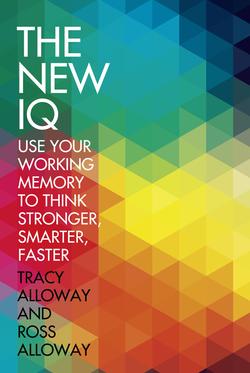Читать книгу The New IQ: Use Your Working Memory to Think Stronger, Smarter, Faster - Tracy Alloway - Страница 50
Working Memory and the Glass Half Full
ОглавлениеThe results of our study on working memory, rumination, and depression were an exciting start because they revealed that people do use working memory to manage emotions, resolve problems, and avoid slipping into depression. Encouraged by these findings, we looked at the opposite end of the happiness scale to determine if a strong working memory makes people more likely to choose optimism.
To explore this question, we joined forces with the British Science Festival, a hugely popular annual event celebrating science, engineering, and technology. With help in promoting our study and inviting festivalgoers to participate in it, we were able to conduct another large-scale study involving thousands of adults. The scale of the study helped us understand how working memory influences happiness and if a strong working memory will make you more likely to see the glass half full.
For this study, participants completed a working memory test and filled out the Life Orientation Test, a clinical questionnaire that gauges levels of optimism and pessimism. We also asked participants to answer yes or no to the following questions:
1 In uncertain times, I usually expect the best.
2 I’m always optimistic about my future.
3 If something can go wrong for me, it will. I rarely count on good things happening to me.
When we looked at their responses, we found a correlation between the strength of working memory and level of optimism. Those with stronger working memory were more likely to have a high level of optimism, while those with weaker working memory tended to be more pessimistic. These results suggest that people with high working memory tend to be more hopeful and confident about the future, while those with weak working memory tend to be more pessimistic.
The research we have examined so far in this chapter suggests that a good working memory is associated with happiness and optimism. It’s not a direct causal relationship because happiness is complex, and many factors—both personal and cultural—play into personal happiness. So although a strong working memory can’t guarantee optimism, it can set your feet more firmly on the path to fulfillment.
One of the huge benefits of optimism is a longer and more satisfying life. Becca Levy’s research at the University of Yale’s School of Public Health demonstrated that older adults who are optimistic about aging live an average of 7.5 years longer than their less optimistic counterparts. An optimistic outlook is also associated with a healthier life. For example, Hillary Tindale and colleagues at the University of Pittsburgh found that optimism reduces the risk of coronary heart disease, which can lead to death. In their study of almost one hundred thousand women aged fifty to seventy-nine, they compared the 25 percent most optimistic with the 25 percent most pessimistic and found that the optimistic women had less risk of cardiovascular problems, as well as reduced risk for diabetes and hypertension. A study with men followed over a ten-year period found similar results: those who were optimistic were less likely to develop coronary heart disease as they aged compared to those who were pessimistic.
